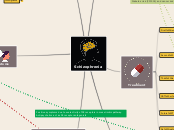по John Keane 7 лет назад
747
Schizophrenia

по John Keane 7 лет назад
747

Больше похоже на это
Symptoms – does not cause split personality or violence. Violence is usually linked to drug or alcohol misuse.
Infamous serial killers who were diagnosed as having a psychotic illness were also drug and alcohol abusers - Jeffrey Dahmer, Daniel Gonzales (drug fuelled killing spree - 'Freddy Krueger Killer'), Richard Chase ('Vampire of Sacramento')
Negative symptoms can often appear years before first psychotic episode - known as prodromal period
Immigrants and their second generation offspring showed rates of schizophrenia up to 10 times higher than those of the general population
Re-hospitilisations, psychosocial functioning, alcohol abuse and relapse more common among cannabis abusers
Dihydrexidine is a selective D1 agonist that has shown positive results in clinical trials where there was significant increase in bilateral prefrontal cortical perfusion after infusion of the drug
Reduced incidence of hyperprolactinemia and EPSE's
Partial 5HT1A agonist
5HT2A antagonist
Partial D2 agonist
Hyperprolactinemia, sedation, weight gain. muscarinic and alpha adrenergic - decreased tuberoinfundibular dopamine activity
Mainly associated with movement disorders - decreased nigrostriatal dopamine activity
PET images contain more or less intense colour to provide information about chemical activity within certain organs and tissues.
Natural causes in over 50%
· Non-natural causes:
o Most common in males was suicide
o Most common in females was CVD
o Suicide was particularly high in the first year after diagnosis in young patients
CVD in females
Suicide in males
Diagnosis – earlier you see the GP the better. Bonn scale shows good evidence for prodromal diagnosis.
Bonn Scale (BSABS)
Perplexity and Cenethesias
Cognitive, Personal or Self-Disorder
Disturbed Contact
Diminished Affectivity